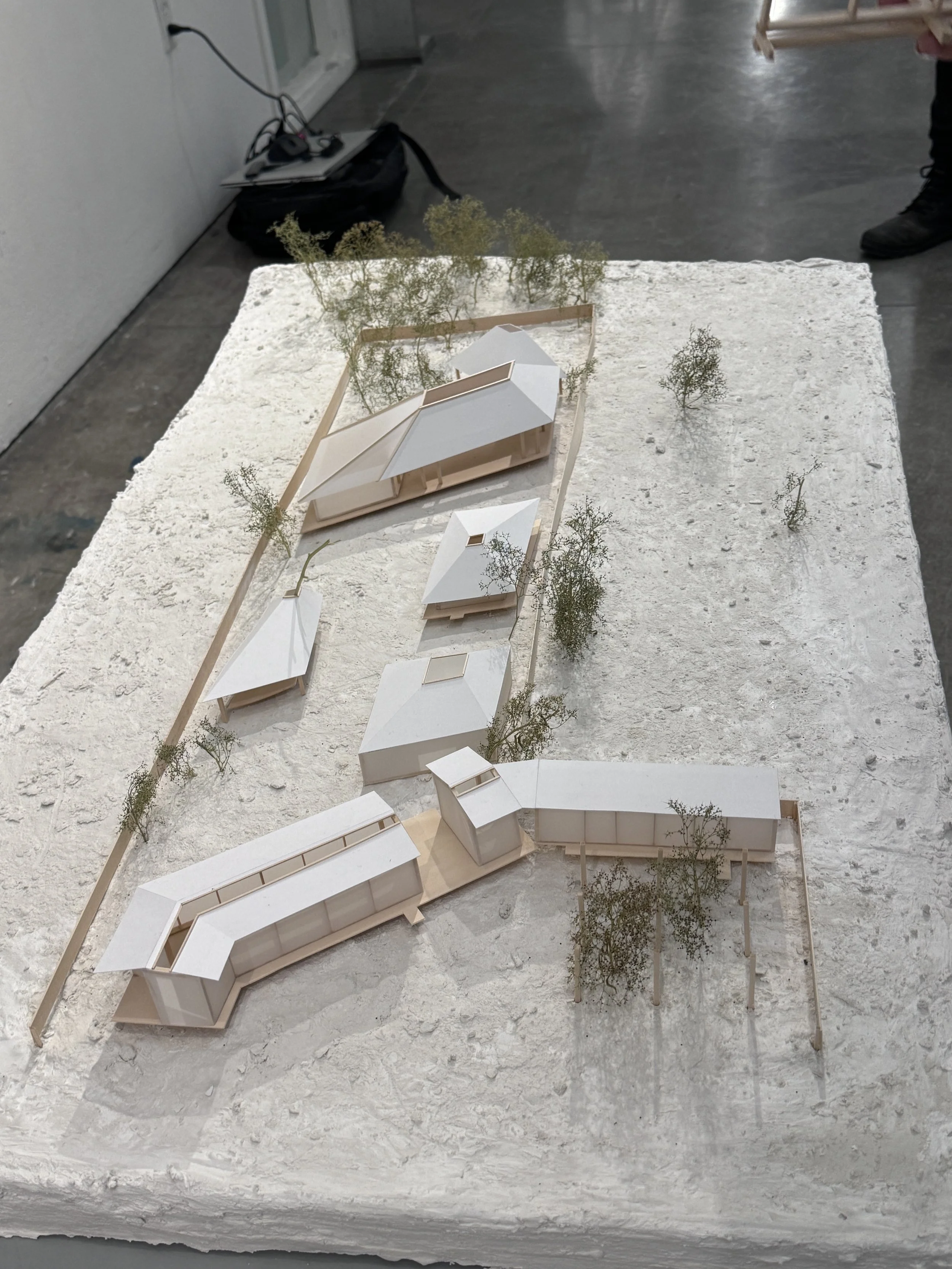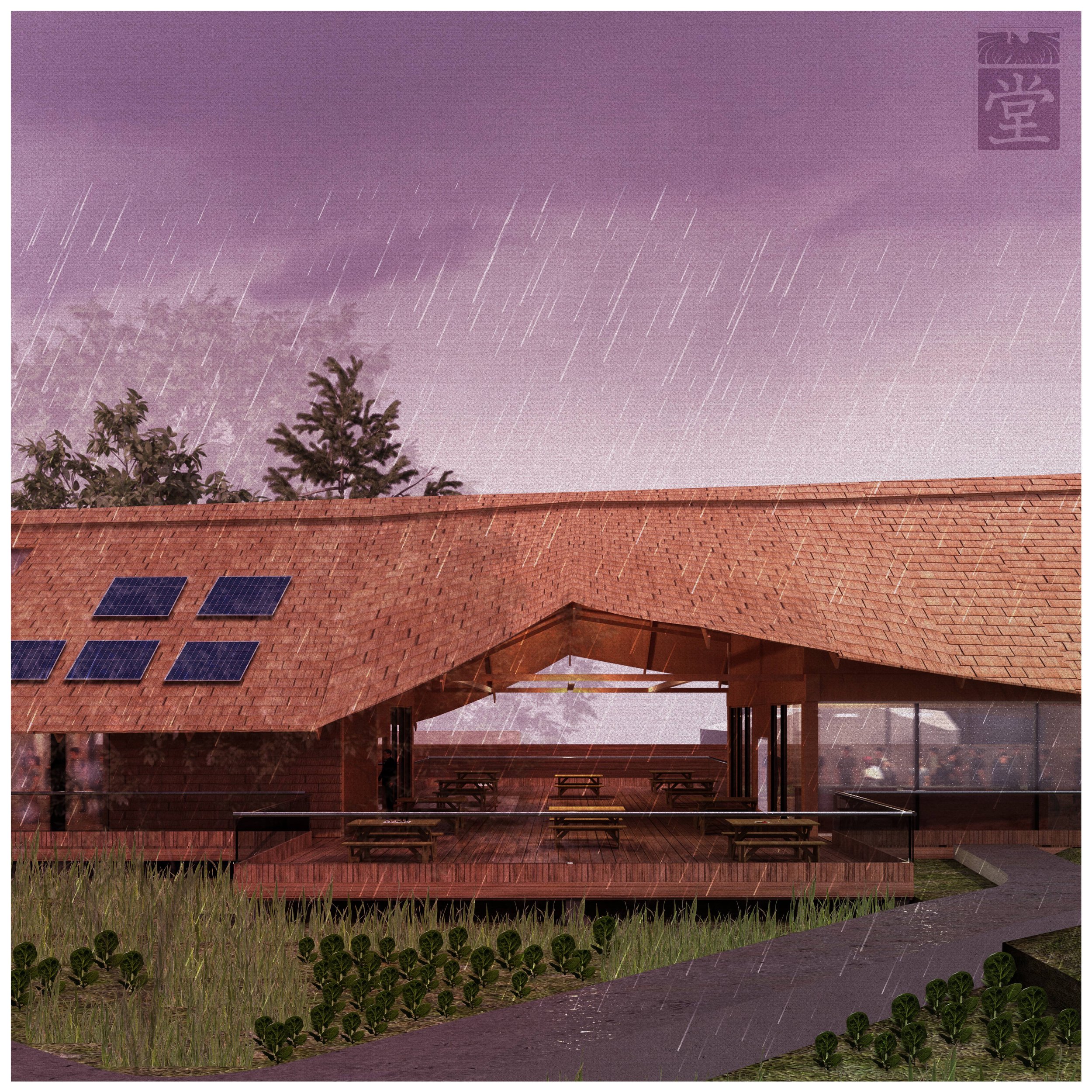Fall 2023
Integrated Studio
Instructors: Evan Jones and Margaret Ikeda
The agricultural promise of work in California was a central draw for many immigrants throughout the twentieth centuries. The valleys of California constitute one of the largest areas of fertile soil on earth coupled with an ideal temperate climate. Successive cultural migrations created a legacy of communities scattered throughout the rural valleys, made possible by their abilities to work the ground, leaving a cultural impact still visible today. While the midwestern grain fields are called “America’s breadbasket” California is sometimes known as the “salad bowl”. With its many microclimates and ecological zones, the state produces over 400 different crops. Equally diverse are the cultures who have been able to settle here and create community. The studio will profile one of these communities in the Arroyo Grande Valley. The site is unique in that it is a communally owned two acre piece of land within an orchard which historically housed a school, community center and kitchen and was the central gathering space for a marginalized group of Japanese immigrants in the 1920s. During World War II when increasing restrictions were imposed on Japanese-Americans in terms of living on the coast, the land became a refuge. After the US imposed relocation of the entire community to incarceration camps, the property acted as a place to which community members could return to as they transitioned back into an area which still looked at them as the ‘enemy’. With the passing of generations and the integration of the Japanese American community into the extended culture of the city, the key question is how to develop the property for the benefit of the greater community without erasing the integrity of the site and the legacy of its activity?
The interaction of the ground (living systems, soil), the cultural history (agriculture, settlement, culture) and the economic future (architecture, building systems) are three equally important factors to be weighed in this studio. Like the traditional game of “rock, paper scissors” each of these elements can be thought of as operating simultaneously on the site, with no one aspect overwhelming the other. Game theorists look at this type of arrangement as self-balancing.
The community center, the last surviving building, which operated as a boy scout meeting hall and Judo dojo was burned down to the ground by arson in 2011. As part of a larger general plan project involving the suburban tract home development of an eleven acre agricultural field to the west, the land was incorporated into a new set of guidelines allowing for greater uses and densities previously prohibited. The studio will work within these guidelines to give form to the complex histories and future potentials for the fourth generation of this still cohesive community. Working within the integrity of the land, history and future forms, the studio will explore how these three scales of time can be brought together on site to suggest flexible and evolving buildings moving forward. Programmatically the site will need to provide an archive, a commercial gathering space, housing and a retail space that support an agricultural educational garden.
The studio will draw on the resources of an existing archive of local documentation and recorded oral histories, will look at regenerative agricultural practices and architectural strategies that are adaptive and promote ecological awareness. As one of the few remaining parcels of city land in the alluvial valley untouched by asphalting and development, the site becomes a strategic location to critically assess the potential of an integrated approach to ecological stewardship and regenerative agricultural practices. While the studio may be highly specific and localized, the questions it addresses are more universal: How can you materialize a past that can ground a regenerative (sustainable) future?
ReGeneration Studio, Fall 2023:
Henry Obeng Asare, Angelica “Mona” Carinugan, Jared Elizares, Luis “Arturo” Gomez, Arjay Jimenez, Chizumi Kano, Vishesh Naresh Khetwani, Hannah Lee Sun, Zion Lewis, David Locon, Daisy Porras, Manthan Rasal, Negar Sadat Hosseini Ebrahimabad, Conrad Scheepers, Vicky Sindac, Joshua Van Heidrich




















